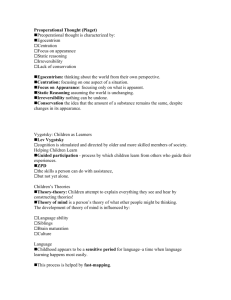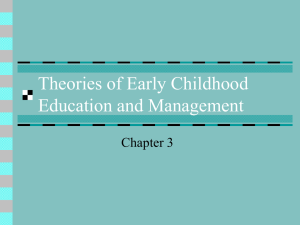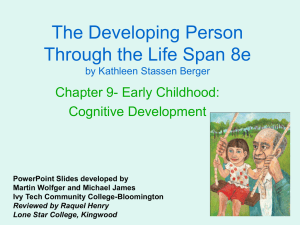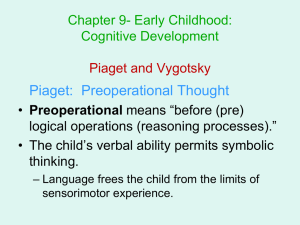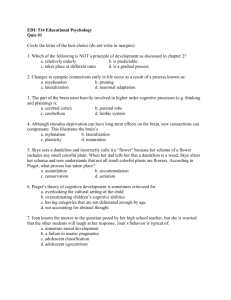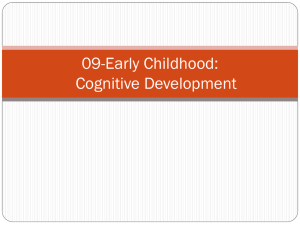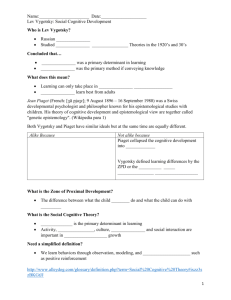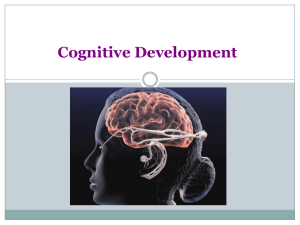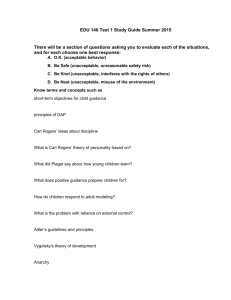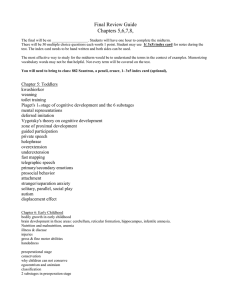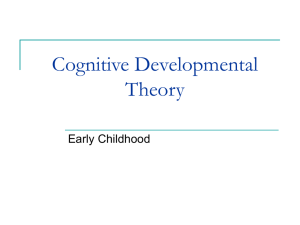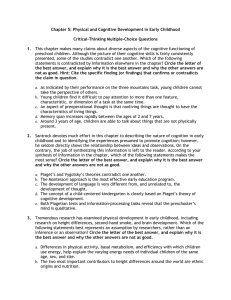Early Childhood Cognitive Development: Piaget & Vygotsky
advertisement
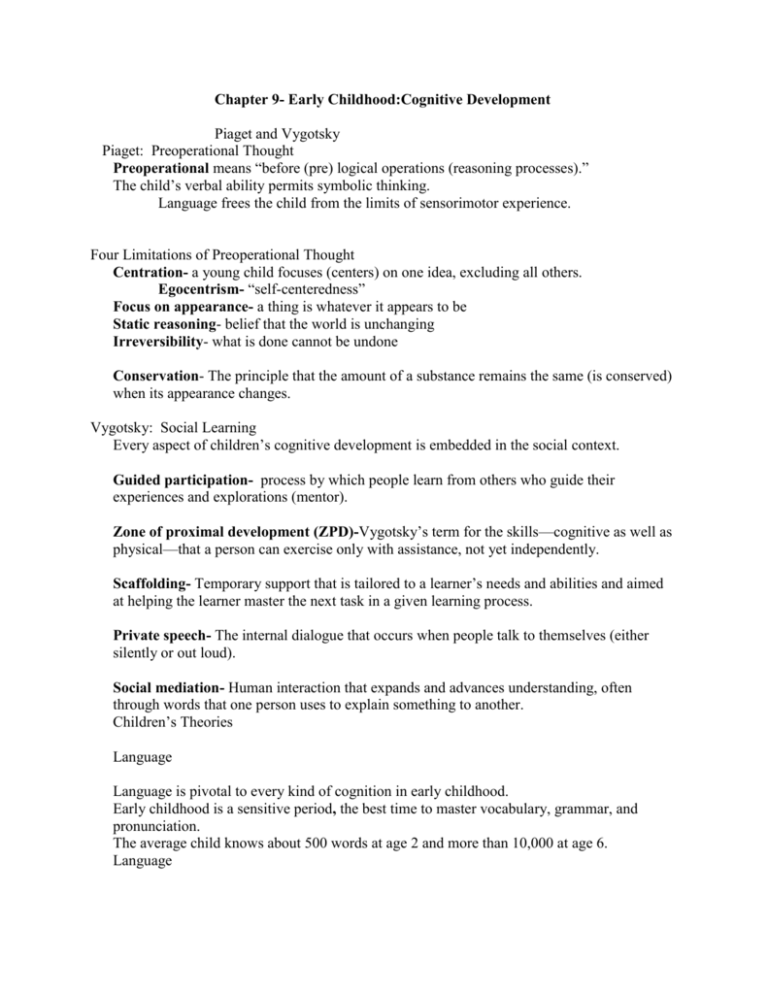
Chapter 9- Early Childhood:Cognitive Development Piaget and Vygotsky Piaget: Preoperational Thought Preoperational means “before (pre) logical operations (reasoning processes).” The child’s verbal ability permits symbolic thinking. Language frees the child from the limits of sensorimotor experience. Four Limitations of Preoperational Thought Centration- a young child focuses (centers) on one idea, excluding all others. Egocentrism- “self-centeredness” Focus on appearance- a thing is whatever it appears to be Static reasoning- belief that the world is unchanging Irreversibility- what is done cannot be undone Conservation- The principle that the amount of a substance remains the same (is conserved) when its appearance changes. Vygotsky: Social Learning Every aspect of children’s cognitive development is embedded in the social context. Guided participation- process by which people learn from others who guide their experiences and explorations (mentor). Zone of proximal development (ZPD)-Vygotsky’s term for the skills—cognitive as well as physical—that a person can exercise only with assistance, not yet independently. Scaffolding- Temporary support that is tailored to a learner’s needs and abilities and aimed at helping the learner master the next task in a given learning process. Private speech- The internal dialogue that occurs when people talk to themselves (either silently or out loud). Social mediation- Human interaction that expands and advances understanding, often through words that one person uses to explain something to another. Children’s Theories Language Language is pivotal to every kind of cognition in early childhood. Early childhood is a sensitive period, the best time to master vocabulary, grammar, and pronunciation. The average child knows about 500 words at age 2 and more than 10,000 at age 6. Language Fast-mapping The speedy and sometimes imprecise way in which children learn new words by tentatively placing them in mental categories according to their perceived meaning. Child-Centered Programs Stress children’s natural inclination to learn through play rather than by following adult directions. Show the influence of Vygotsky, who thought that children learn from other children and through cultural practices that structure life. Montessori schools emphasize individual pride and accomplishment, presenting literacyrelated tasks. Reggio Emilia approach- A famous program of early-childhood education that originated in the town of Reggio Emilia, Italy; it encourages each child’s creativity in a carefully designed setting. Early Childhood Education Teacher-Directed Programs Stress academic subjects taught by a teacher to an entire class. Children learn letters, numbers, shapes, and colors, as well as how to listen to the teacher and sit quietly. Make a clear distinction between work and play. Are much less expensive, since the child/adult ratio can be higher.
